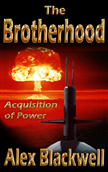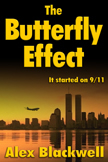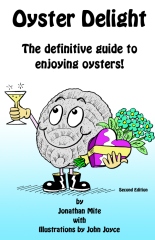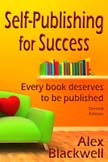 |
Editing
“The first draft is just you telling yourself the story.”
Terry
Pratchett
Say “Yes” to Editing
My first attempt at writing was a travelogue about a trip to Jamaica during the early ‘70s. It was just prior to the troubles in that wonderful Caribbean nation. It described the tensions we palpably witnessed on that winter trip.
My story, certainly no work of note, was well received by my teachers and peers. It was duly published in the school journal, and almost certainly subsequently relegated to the round filing bin in the corner of the room in most homes, rubbish that it was. Of course, my mother kept her copy, and I recently re-read my first work. My reaction? It could have done with “some” help.
My first exposure to working with an editor came when I wrote my master’s thesis years later. I spent two years conducting practical research, then collecting and interpreting mountains of data. When my manuscript was finally done, a close friend of my parents offered to read my work. Dr. Gerald Lyons had been studying tropical diseases in Malawi, Western Africa. One of his specialties was Bilharzia, a parasite borne by microscopic copepod shrimp. My work was about rearing copepods to feed newly hatched baby fish.
This was in the days before computers and word processors. When I handed him my precious manuscript it was the only copy in existence. A few weeks later he returned it. As I flipped through the pages, my heart sank. Almost every line on every page was marked up in glaring red ink. To say that I was devastated would be a huge understatement. I wanted to cry. I wanted to burn the wretched pages. My greatest achievement, the culmination of years of work was trashed by this so-called ‘friend’.
 I threw it in a corner and went for a walk – a very long walk. I was devastated. I had always had a suspicion that I was a fraud, that the academic goal I had set for myself was way beyond my reach.
I threw it in a corner and went for a walk – a very long walk. I was devastated. I had always had a suspicion that I was a fraud, that the academic goal I had set for myself was way beyond my reach.
Hours later (it might have been days) I returned, hoping the manuscript had vanished. It was still lying there. Miserable to the core, I reached out and picked it up. . I started reading what was to have been my crowning achievement at page one.
There was a short note at the top from the friend saying that he had been amazed by the scope and quality of what I had written. Because of this he had taken special interest in critiquing and making suggestions.
I read on. Word by word and line by line, I compared my writing with his comments. I was awestruck at the depth of understanding with which he had treated my meagre efforts. I pulled out my typewriter and started to write. Some suggestions I dismissed; others caused me to rethink and rewrite whole sections.
Several months and two more rewrites later, I handed the final printed and bound book to my professor. He was ecstatic. In no small part because of my editor, my thesis became the foundation of decades of subsequent research work and was widely cited.
In hindsight, now that I have learned first-hand just how much work editing is, he must have worked full time on my manuscript all the while he had it in his possession. My gratitude to him knows no bounds. My thoughts go back to him every time I write and every time I speak with other writers.
Since then I have written short stories, fiction thriller novels, and non-fiction ‘how-to’ books. Each time, as with any other author, publication of my writing has required a baring of my soul – irrespective of what had been written. Writing is an intensely personal experience. It is connected to the fragile inner psyche. Still, each time, I bite the bullet and hand that which is nearest and dearest to my heart off to my editor.
From my original editor and true friend, Gerald Lyons, who graced an insignificant youth with his expertise, I learned that all important lesson:
As an author it is my role to have an idea and to paint a picture with words.
It is the editor’s job to see my idea and make my work the best it can be.
This is a delicate but immensely valuable partnership.
Rule #1: The editing starts when the first draft is done.
Many writers power through a draft of their book to get their thoughts all out of their heads. This is not the time to turn your work over to an editor. This is the time to go back to page one and begin editing yourself. Invariably, you will find gaps or disjointed thoughts that require correction. Typographical errors and grammar will rear their heads. It’s the time to rework sentence structure for better clarity and readability, and it’s the time to remove superfluous words and phrases. When you’ve read your book the second time, usually out loud, you may be ready to turn your work of art over to an editor.
A skilled editor will find ways to improve all of the above, but will also take into consideration the tone, the build of characters and the overall plot. A great editor will work seamlessly with the writer to turn the work into that masterpiece.
Rule #2: You cannot proof your own work.
I’m not saying you should not read, rewrite, re-read, and keep changing things as described above yourself. What you cannot do is find spelling errors (typos), grammatical errors, inconsistencies, word duplications, idiosyncrasies, flow errors, etc. Most people are immune to their own habits. Having written a document, your mind reinterprets what you have written and thus misses many things. This is perfectly normal and does not make you a poor writer.
In our printing company, we routinely printed brochures and newsletters written by our clients. We did the design and layout. “Yes, the text is perfect,” I was routinely told. When I then read the provided copy, I invariably stumbled over many items: typos, punctuation, and word usage. Commonly I would find there was something missing. That was usually an omission by the writer where they had either assumed the reader would know the subject, or worse, where the writer had thought that item had been included where it was not – even after many edits.
So, we added a proofreader and an editor to our staff and were able to add another service to our portfolio. Many writers, especially when self-publishing, don’t have access to good editors and proofreaders. Relying on skilled friends and family members is a good start.
|
White Seahorse (Reg. in Ireland, #444071) is a division of Knowledge Clinic Ltd.
Europe: Port Aleria, Rosnakilly, Kilmeena, Westport, Co. Mayo, Ireland - USA: PO Box 726, Mahwah, NJ 07430 All content on this site is subject to Copyright© |












